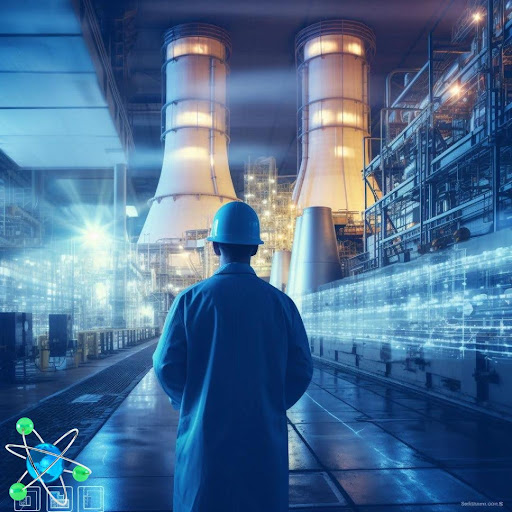
- Launched in 2016 by the DOE Office of Nuclear Energy, the Gateway for Accelerated Innovation in Nuclear (GAIN) initiative facilitates collaborative projects between businesses and national laboratories to address critical technological challenges in nuclear energy.
- Awardees of the first GAIN vouchers for 2024, including industry leaders like Westinghouse Electric Company and SHINE Technologies, engage in collaborative efforts with renowned national laboratories. Projects range from irradiation testing of ceramic matrix composites to assessing sensor technologies in fuel recycling systems.
- With a commitment to advancing nuclear innovation, GAIN plans four rounds of Nuclear Energy Vouchers in Fiscal Year 2024. The initiative emphasizes long-term goals, aiming to shape the future of nuclear technology through impactful collaborations and advancements in research and development.
In 2016, the Department of Energy (DOE) Office of Nuclear Energy unveiled the Gateway for Accelerated Innovation in Nuclear (GAIN) initiative. This forward-thinking program aims to assist businesses in overcoming critical technological and commercialization challenges within the realm of nuclear energy technologies.
GAIN employs a voucher system, facilitating access to the DOE’s cutting-edge research and development (R&D) facilities and infrastructure. This strategic approach supports the cost-effective development of innovative nuclear energy technologies. A key feature of the initiative is that all awardees are mandated to contribute a minimum of 20% as a cost-share, which can take the form of in-kind contributions.
The recipients of the first GAIN vouchers for 2024 include notable industry players engaging in collaborative efforts with esteemed national laboratories:
Westinghouse Electric Company is partnering with Oak Ridge National Laboratory to conduct irradiation testing and associated post-irradiation examination on a ceramic matrix composite designed for potential use in the eVinci microreactor.
SHINE Technologies has teamed up with Argonne National Laboratory and Sandia National Laboratory to evaluate sensor technologies and their placement in a fuel recycling system. The goal is to ensure the effective tracking of nuclear materials.
Aalo Atomics is collaborating with the Idaho National Laboratory (INL) to assess modeling and simulation capabilities for the fuel and core system of the Aalo-1 microreactor, drawing inspiration from INL’s planned MARVEL reactor.
ARC Clean Technology, Inc., in conjunction with Argonne National Laboratory, is enhancing its simulation software with additional passive heat removal capabilities. This will contribute to a more accurate modeling of its sodium-cooled reactor design.
Global Nuclear Fuels – Americas is partnering with Argonne National Laboratory to verify the viability of their electroreduction technology. The objective is to convert uranium oxide fuel stock into a metal suitable for advanced reactor fuel.
Boston Atomics is collaborating with Oak Ridge National Laboratory on a design review of an in-vessel fuel handling machine tailored for a horizontally oriented integrated reactor and steam generator.
Energy Northwest is working with Argonne National Laboratory to leverage climate forecasting for the next century. This information will inform the design and selection of future nuclear reactor cooling systems, considering their impacts on electricity costs.
The GAIN initiative has announced the availability of further information on all selected proposals set to receive vouchers. Looking ahead, four rounds of GAIN Nuclear Energy Vouchers are planned for Fiscal Year 2024, showcasing a commitment to advancing nuclear innovation and technology.

